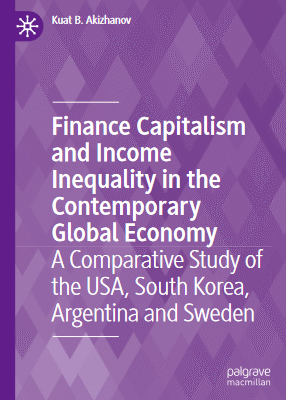

خرید و دانلود نسخه کامل کتاب The Barcelona School of Ecological Economics and Political Ecology – Original PDF
104,500 تومان قیمت اصلی 104,500 تومان بود.77,500 تومانقیمت فعلی 77,500 تومان است.
تعداد فروش: 44
Author:
Sergio Villamayor-Tomas • Roldan Muradian
My mother tried (unsuccessfully) to become a volunteer nurse on the Republican side in the Spanish Civil War and prompted me at an early age to read George Orwell’s Homage to Catalonia. In my fifteenth summer, before the tourist boom, she took me for a week to Tossa del Mar, partly in the hope that I would learn a little Spanish. I remember on the beach meeting another teenager, a couple of years senior to me, and enquiring (inarticulately) what he thought of Franco. At first he looked all round, then led me to a quiet spot. “Odio a Franco.” I tried to understand why, but the barrier separating us was more than linguistic. No-one I knew in London was as intense as this. “After the war he killed my father, he killed my two older brothers. The only reason I survived was because I was so little.” Such antecedents shaped my reactions when, 8 years later, I first met Joan Martinez-Alier – at the Latin American Centre in Oxford University, where I was beginning my academic career. My spoken Spanish was still shaky, but I had learnt to read quite well. Joan had just published his first book with Ruedo Iberico, an ethnography of olive growing in southern Spain, and he needed someone to help him translate into grammatical English. After a few months I became remarkably proficient in the specialized vocabulary of olive planting, hoeing and harvesting, even though I had never knowingly clapped eyes on an olive grove, and was still barely capable of a social conversation in Spanish on more familiar matters. What did penetrate my consciousness was the spirit of the Miguel Hernandez poem quoted above. Prefaces vii Little by little I became acquainted with more of Joan’s work and outlook, and over the ensuing half century, our paths have crossed from time to time, although only rarely and fleetingly. Since the great hinterland of his life is closed to me, all that I can contribute here are the following fragmentary and episodic recollections. They concern his impact on me, rather than the overall arc of his existence. Reading about his oliveros reinforced one of my early professional biases. Whatever grand theory or social science orthodoxy happened to absorb my attention at any particular time, Joan (like my mother in this respect) always reminded me of the need to listen to ordinary people, to value close observation of real conditions, to resist the intellectual’s temptation to substitute a fancy generalization for the granular texture of actual human practices. I was more of a welfare statist than Joan (always the anarchist at heart). But Joan’s encouragement of patient ethnographic enquiry, informed by a genuine openness to humanity’s strange diversity of “really existing” conditions, beliefs and practices, has proved a vital antidote to the “ivory tower” distortions of a lifetime spent in Oxford Colleges. Oxford’s Latin American Centre has always needed some capacity to monitor and explain the course of the Cuban Revolution, and (unlike in Spain) there is almost no-one in British academia who has the opportunity to pursue that thread of enquiry. On a modest scale that task has normally fallen to me, and in the early days, Joan played a creative role in strengthening that project. The core problem has always been that the Fidelista lobby can tolerate no critical commentary, while the massed weight of US (and therefore English language) scholarship on Cuba is suf- fused with anti-fidelista and Miami-centric bias to such an extent that little in- between can get a hearing. But a few of us could listen to both sides without being captured by either orthodoxy, and the mandate of the Latin American Centre was to pursue the evidence that both camps distorted and disvalued. In particular, my prob- lem has always been that although I could easily access both Havana and Miami, I lacked the face-to-face contact needed to reliably bypass the clashing ideologies. In this regard, at an early stage in my career, I recall making some approximate and unfounded guesses about peasant life in communist Cuba. Joan quietly but firmly informed me of the sad and sorry realities, at least as he had observed them firsthand in one small community in the neglected eastern interior. Since then I have I have been more careful to remember what I did not know about the island



نقد و بررسیها
هنوز بررسیای ثبت نشده است.